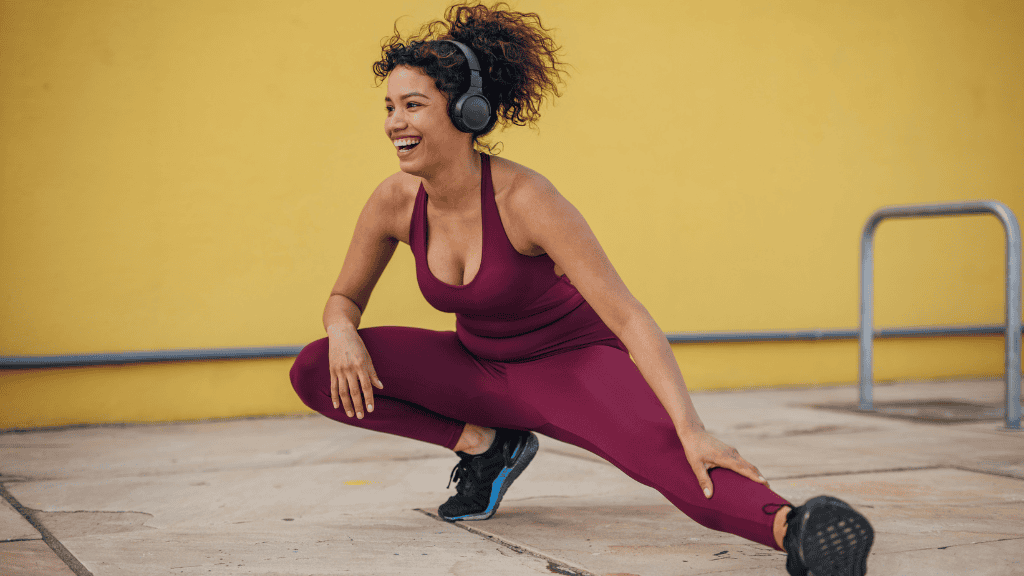
Table of Contents
This post may contain some affiliate links. I only recommend products and services I genuinely believe in. Additionally, some content on this website may have been created with the assistance of AI.
Discover How Well You Really Take Care of Yourself

Unlock Your Best Self: Transform Your Physical Well-being
Do you often find yourself slogging through your days, feeling utterly drained even after what should have been a restful night’s sleep? Are you constantly battling a lack of energy, struggling to meet your responsibilities, and feeling like you’re barely keeping your head above water?
If you’re nodding along, know that you’re not alone in this struggle. Neglecting our physical well-being can profoundly impact our energy, affect our mood, and even take a toll on our emotional health. But here’s the good news-by prioritizing self-care, you can unlock a happier, healthier, and more energized version of yourself.
Imagine feeling stronger, more focused, and better equipped to manage the ups and downs of daily life. Taking care of your physical needs has incredible benefits for both your body and mind.
This quick self-care quiz, designed to help you pinpoint areas where your physical well-being could use a boost, is your first step towards a healthier and happier life. By understanding your unique needs, you’ll be empowered to make positive changes.
This post may contain some affiliate links. I only recommend products and services I genuinely believe in. Additionally, some content on this website may have been created with the assistance of AI.
Key Takeaways
Physical self-care is essential for overall well-being. Neglecting your physical health impacts your mood, energy levels, and resilience.
- Your physical health deeply influences how you feel. It impacts your energy, mood, and ability to bounce back from stress.
- The fundamental essentials: Focus on good nutrition, movement, sleep, stress management, and listening to your body.
- Your mental health matters, too! The mind and body are deeply connected. Don’t neglect either.
- Where do you stand? This quick quiz reveals your self-care strengths and where you can improve.
Small changes, big impact! It’s not about overnight perfection but about making consistent, healthy choices.

Key Areas of Physical Self-Care
Fueling Your Body for Life: The Power of Balanced Nutrition
In my work as a transformational whole-self and wellness lifestyle empowerment coach, I often see how dramatically nutrition impacts a person’s overall well-being. Think of your body as a high-performance engine – it needs the right fuel to run smoothly and efficiently.
A balanced diet, rich in whole foods like fruits, vegetables, and lean protein, provides the essential nutrients your body craves to function at its best. This doesn’t mean every meal needs to be a health halo masterpiece, but ditching the heavily processed convenience foods and focusing on incorporating more “real” ingredients will significantly improve your energy levels, mood, and overall health.
The quiz questions below will help you gauge your current dietary habits and identify areas where a few tweaks could make a big difference!
Quiz Time: Your Nutritional Habits
Please answer the following questions as honestly as possible to get a sense of your current eating patterns.
Rate your typical meals:
On a scale of 1-5 (1 being mostly processed, 5 being whole foods focused), how would you rate the quality of your average breakfast, lunch, and dinner?
Fruits and Veggies Check:
How many servings of fruits and vegetables do you eat on an average day?
The Convenience Trap:
How often do you resort to processed foods (think boxed meals, frozen dinners, fast food) for the sake of convenience?
Always
Often
Sometimes
Rarely
Hydration Awareness:
How many glasses or oz of water do you drink daily, on average?
Mindful Snacking:
When you reach for a snack, do you typically choose:
Whole foods (fruit, nuts, yogurt)
Packaged snacks (chips, cookies, granola bars)
I don’t usually snack
Portion Check: Do you tend to:
Eat until you feel overfull, regardless of serving size
Pay attention to your body’s hunger and fullness cues
Often find yourself still hungry after meals
Sugar Rush:
How often do you consume sugary treats or drinks like soda, sweetened coffee/tea, or juices?
Daily
A few times a week
Rarely
How to Rate Your Answers:
For most questions, consider a simple scoring system:
- Answers reflecting healthier habits = Higher points
- Answers reflecting less healthy habits = Lower points
For example, with the “Fruits and Veggies Check,” you might assign 2 points for consuming 5+ servings daily and 0 points for consuming less than 2 servings.
Note: This is designed for awareness, not judgment! The real Power lies in pinpointing where you might benefit from small, positive shifts.
As you read the full article, you’ll find similar quiz sections on exercise, sleep, stress management, and body awareness.

Out of Balance: Signs Your Nutrition Needs Attention
If you find yourself relying heavily on processed foods, struggling to fit in sufficient fruits and vegetables, or constantly battling sugar cravings, your body is likely sending you subtle (or not-so-subtle) signals that your nutrition is out of balance. Here are some common indicators:
- Persistent Fatigue: Even with enough sleep, do you consistently feel sluggish and low on energy? Poor nutrition could be to blame.
- Weakened Immunity: Getting sick often or struggling to shake off those colds? A nutrient-poor diet can compromise your immune system.
- Mood Swings and Irritability: Blood sugar crashes from excessive processed foods, and sugary drinks can lead to emotional rollercoasters.
- Digestive Issues: Frequent bloating, constipation, or other gut troubles can be related to your dietary choices.
- Difficulty Concentrating: A balanced diet gives your brain the fuel it needs for optimal function.
Remember: Food is much more than just calories. It has far-reaching health benefits. It’s the building blocks for your cells, the energy source for your body, and even impacts your mental health.

Tips: Improving Your Nutrition Game
Ready to give your body the nourishing fuel it deserves? Here are a few simple strategies to get you started:
- Embrace Whole Foods: Gradually shift your meals to focus on whole, unprocessed ingredients like:
- Fruits and vegetables (fresh, frozen, or canned are all good!)
- Whole grains (brown rice, quinoa, whole-wheat bread)
- Lean protein (fish, chicken, beans, lentils)
- Nuts and seeds
- Plan Ahead: A little prep goes a long way. Ideas:
- Stock your pantry and fridge with healthy staples.
- Chop veggies on the weekend for easy snacking or adding to meals.
- Make a big batch of soup or a healthy casserole to enjoy throughout the week.
- Snack Smart: Ditch processed snacks and opt for:
- Fresh fruit and veggie sticks with hummus or yogurt dip
- Handful of nuts or trail mix
- Hard-boiled eggs
Remember: Small changes make a big difference. Don’t try to overhaul your diet overnight – consistency is key!

Move Your Body, Boost Your Mood: The Power of Physical Activity
Let’s be honest—sometimes, squeezing in a workout feels like the last thing we want to do. But as a whole self and wellness lifestyle coach, I’ve witnessed just how dramatically regular physical activity transforms people’s lives. Exercise isn’t just about sculpting a beach body (though that can be a perk!); it’s a powerful tool for boosting overall well-being. Additionally, a combination of aerobic exercise and resistance training can help maximize fat loss, maintain muscle mass, and reduce the risk of cardiovascular disease.
Think of it as a magic bullet for your mood, energy levels, and even sleep quality. Regular physical activity, whether it’s a brisk walk in the park, a heart-pumping spin class, or a session of bodyweight exercises and weights at home, gets your blood pumping, releases those feel-good endorphins, and strengthens your cardiovascular system – the engine that keeps your whole body humming.
The quiz below will help you gauge your current activity level and explore different types of movement that might light your physical fitness journey on fire.
Quiz Time: Get Moving, Feel Amazing – Your Exercise Check-In
Let’s honestly examine your current physical activity guidelines and level. These simple questions will help you identify areas for growth and find movement you enjoy!
Movement Throughout Your Day:
Outside of scheduled workouts, does your daily routine offer opportunities for physical activity?
Frequent walking (taking the stairs, errands on foot, etc.)
Mostly sedentary
Somewhere in between
Find the Fun Factor:
Rate your enjoyment of exercise or movement on a scale of 1-5 (1 being you truly dislike it, 5 being you absolutely love it).
How to Rate Your Answers:
Aim for honesty, not perfection! Just like the nutrition section, use a point system where:
- More active habits = Higher scores
- Less active habits = Lower scores
The most important thing is discovering what type of movement feels good so you’re more likely to stick with it. For improved physical well-being, consider aerobic exercise, strength training, walking daily, lifting weights, and using helpful tools like resistance bands.

Out of Balance: Exercise Deficiency – Signs to Watch For
While it’s tempting to view exercise as optional, a consistently inactive lifestyle can lead to a cascade of negative effects on both your physical and mental well-being. Here’s a glimpse of what you might experience:
- Reduced Fitness Level: Without regular physical activity, your muscles weaken, your muscle mass reduces, your metabolism slows, your stamina decreases, and everyday tasks can become more difficult over time.
- Increased Disease Risk: Physical inactivity is a major risk factor for chronic diseases like heart disease, type 2 diabetes, and some types of cancer.
- Lowered Mood: Exercise is a powerful mood booster! Skipping your workouts can contribute to feelings of anxiety, depression, and low self-esteem.
- Disrupted Sleep: Regular physical activity can help you fall asleep faster, sleep more soundly, and wake up refreshed.
The good news? Even a little bit of movement is better than none. You’ll be surprised how quickly your body adapts once you start prioritizing physical activity!

Tips: Make Exercise Fun and Sustainable
Finding something you genuinely enjoy is the key to transforming exercise from a chore into a habit. Here are a few tips to get started:
- Explore Your Options: Don’t limit yourself to the gym! Try dancing, swimming, hiking, yoga, or team sports – there’s something out there for everyone. Physical activity has the Power to improve your quality of life, so find something you think you would enjoy and start there.
- Start Small: Don’t feel pressured to jump into a marathon training plan. Start with short walks, 10-minute workout videos, or any form of movement that leaves you feeling energized.
- Buddy Up: Exercising with a friend or joining a group fitness class can boost motivation and accountability.
Remember: Consistency is more important than intensity. Building enjoyable movement into your daily routine is a powerful investment in your long-term well-being!

Recharge and Refocus: The Power of Prioritizing Sleep
In my work as a wellness lifestyle coach, I see many clients struggling with fatigue, brain fog, and difficulty managing stress. Often, the culprit is a sleep debt. Sleep isn’t a luxury – it’s a biological necessity.
Think of it as the time your body and mind hit the reset button, processing information, consolidating memories, and restoring your physical and mental resources. Consistently aiming for quality sleep is a game-changer for your overall health and well-being.
The following section will ask you a few questions about your sleep habits to help identify areas for improvement. But trust me, prioritizing those precious shut-eye hours is an investment you won’t regret!
Quiz Time: Are You Getting the Rest You Need?
Let’s closely examine your sleep patterns to pinpoint any potential challenges!
Quantity Matters:
On average, how many hours of sleep do you get on most nights?
Quality Check: How would you rate your overall sleep quality?
Restful
Sometimes restless
Poor
Rested and Ready: Do you generally feel refreshed and energized upon waking?
Yes, most of the time
Sometimes
Rarely
How to Rate Your Answers:
Aim for honesty! This isn’t about judgment but rather gaining awareness. Generally:
- More hours of sleep = Higher points
- Restful sleep = Higher points
- Feeling refreshed in the morning = Higher points

Out of Balance: The Toll of Sleep Deprivation
Chronic sleep deprivation – consistently getting less sleep than your body needs – can wreak havoc on your physical and mental health. Here are some warning signs you might be sleep-deprived:
- Foggy Brain: Struggling with focus, concentration, and clear thinking are hallmark signs of sleep debt.
- Emotional Rollercoaster: Sleep deprivation can exacerbate mood swings, irritability, and even contribute to anxiety and depression.
- Weakened Immunity: Adequate sleep is crucial for a healthy immune system, making you more susceptible to sleep-deprived illness.
- Weight Gain: Sleep hormones regulate hunger and satiety. When sleep-deprived, your body craves more calories, potentially leading to weight gain.
- Physical Decline: From slower reaction times to increased risk of chronic diseases like heart disease and diabetes, the consequences of sleep deprivation ripple throughout your body.
Remember: Prioritizing quality sleep isn’t a luxury; it’s a necessity for optimal health and well-being.

Tips: Reclaim Restful Sleep
If you’re struggling with your sleep, these simple changes can make a big difference:
- Routine is Key: Create a relaxing bedtime routine and follow a consistent sleep-wake schedule, even on weekends.
- Tech Time-Out: Limit screen time for at least an hour before bed as the blue light emitted from devices can disrupt sleep hormone production.
- Create a Sleep Sanctuary: Make sure your bedroom is dark, quiet, cool, and reserved only for sleep and intimacy.
Remember: It might take some time for your body to adjust to these changes. Be patient and persistent, and celebrate those mornings when you wake up feeling truly rested!

Finding Calm Amidst the Chaos: Why Stress Management Matters for Mental Health
Let’s face it, life can be stressful. Deadlines loom, responsibilities pile up, and unexpected challenges can throw us off balance. But here’s the thing: chronic stress isn’t just a drain on our mental well-being; it takes a toll on our physical health, too.
In my line of work, I’ve seen the profound benefits of learning to manage stress. It’s not about eliminating stress (life happens!). Stress management practices like meditation have been shown to help manage conditions such as heart disease and high blood pressure, highlighting the interconnectedness of mental and physical health.
Instead, effective stress management is about building a toolkit of healthy coping mechanisms, enabling you to face life’s curveballs with greater resilience.
The next section includes a few questions to help gauge your current stress levels and identify areas where you might benefit from incorporating stress-busting practices.
Remember, prioritizing your mental well-being is just as important as taking care of your physical health!
Quiz Time: Are You Taming Your Stress?
Take a moment to reflect on your stress levels and coping strategies:
Stress-Busting Practices:
Do you regularly engage in stress-reducing activities, like meditation, yoga, spending time in nature, or deep breathing exercises?
Managing the Daily Grind:
On a scale of 1-5 (1 being poor, 5 being excellent), how would you rate your ability to manage everyday stressors?
Feeling Overwhelmed:
Do you frequently feel overwhelmed, unable to switch off, and struggling to relax?
Often
Sometimes
Rarely
How to Rate Your Answers
As always, these questions are for awareness, not judgment! Consider:
- Regular stress-reducing activities = Higher points
- Better stress management skill = Higher points
- Less frequent feelings of overwhelm = Higher points
Effective stress management is crucial, especially for individuals with mental health conditions, as it supports their overall well-being and fosters stronger social connections.

Out of Balance: When Stress Takes Over
While a certain amount of stress is normal, chronic stress – that nagging feeling of persistent worry and overwhelm – has severe consequences for your physical and mental health. Here’s how your body might react to unmanaged stress:
- Aches and Pains: Tension headaches, muscle tightness, and even chronic pain conditions can be linked to elevated stress hormones.
- Digestive Upset: Stress messes with your gut! It can lead to nausea, heartburn, constipation, or diarrhea.
- Weakened Immunity: Chronic stress suppresses your immune system, leaving you more susceptible to colds, infections, and chronic diseases.
- Mental Fog: Difficulty focusing, poor memory, and constant worries are telltale signs that stress is short-circuiting your brainpower.
- Mood Swings: Persistent irritability, anxiety, and even an increased risk of depression can all be connected to chronic stress.
Remember: Stress manifests differently in everyone. Understanding how unmanaged stress affects your body is the first step toward finding strategies that work for you! Additionally, chronic stress can exacerbate the symptoms of mental illness, highlighting the importance of managing stress for overall well-being.

Tips: Reclaim Your Calm
- Relaxation Techniques: Explore methods like deep breathing, meditation, progressive muscle relaxation, or yoga to combat stress in real time.
- Find Your Outlet: Whether it’s creative expression, exercise, spending time in nature, or connecting with loved ones, dedicate time to activities that bring you joy or a sense of peace.
- The Power of “No:” Setting boundaries is self-care. Learn to say “no” to overcommitment and make time to recharge your batteries.
Remember: There’s no one-size-fits-all solution for stress management. Experiment and find techniques that resonate with you!

Tune In to Your Body: The Power of Body Awareness
In my work in the health and wellness space, I often see people disconnected from their bodies. They push through fatigue, ignore aches and pains, and silence their intuition.
But here’s the secret: your body is constantly sending you signals about its needs. Developing strong body awareness is a powerful self-care practice, allowing you to respond to these signals before they escalate into bigger issues.
Think of it as preventative healthcare from the inside out! By tuning into your body’s subtle cues—like fatigue, muscle tension, or cravings for healthy foods—you can make proactive choices that promote overall well-being.
The following quiz will help you gauge your current body awareness level and identify areas for improvement. Remember, prioritizing self-care isn’t selfish—it’s the foundation for a healthy, vibrant life!
Quiz Time: Are You In Sync with Your Body?
Let’s explore your awareness of the signals your body sends:
Understanding Your Needs:
Do you regularly heed your body’s signals for rest, hunger, and thirst?
Addressing Discomfort:
When experiencing pain or discomfort, do you prioritize addressing the root cause through preventative care or seeking medical attention when needed?
Always
Sometimes
Rarely/Never
Pleasure and Relaxation:
Do you dedicate time to activities that bring you physical pleasure and relaxation, like massage, baths, stretching, or gentle movement?
How to Rate Your Answers:
This section is about noticing patterns, not perfection! Consider:
- Listening to your body’s cues consistently = Higher points
- Prioritizing proactive pain management = Higher points
- Regularly engaging in self-nourishing activities = Higher points

Out of Balance: When You Disconnect From Your Body
When we chronically ignore our body’s signals, we set ourselves up for adverse consequences. Here’s a glimpse of what can happen:
- Burnout and Exhaustion: Pushing through fatigue can deplete your energy reserves, leading to burnout and hindering your ability to function at your best.
- Chronic Pain: Ignoring aches and pains can lead to chronic conditions that are more difficult and expensive to treat in the long term.
- Weakened Immunity: Constant stress on your body from unaddressed discomfort can compromise your immune system, making you more susceptible to illness.
- Emotional Imbalance: The mind and body are intricately connected. Ignoring physical needs can manifest as anxiety, irritability, and difficulty managing stress.
- Missed Health Issues: Body awareness can be an early warning system for underlying health problems. Ignoring these signals can delay diagnosis and treatment.
Remember: Your body is your wise guide. Tuning into its subtle cues is a powerful tool for optimizing your well-being and preventing future problems!

Tips: Reconnect with Your Body
Learning to truly listen to your body takes practice, but it’s a skill with immense payoffs. Here’s how to get started:
- Cultivate Mindfulness: Pay attention to your body’s sensations without judgment. Practicing mindfulness through meditation, gentle movement, or spending time in nature can help hone this awareness.
- Schedule Regular Checkups: Proactive healthcare is essential! See your doctor for regular physicals, dental exams, and any preventative screenings relevant to your age and health history.
- Prioritize Nourishment: Support your body with activities that feel good and enhance your well-being. This could include regular exercise, relaxing baths, massage, or simply taking time to rest and recharge.
Remember: Body awareness is an ongoing journey. Celebrate small steps forward and trust your body’s innate wisdom to guide you towards a healthier, more vibrant life!

The Mind-Body Connection
In my life and work, I’m constantly reminded that true well-being isn’t compartmentalized. Our minds and bodies are intricately linked—what impacts one inevitably affects the other. This dynamic interplay is known as the mind-body connection.
Let’s unpack this more. Consider stress, for instance. While it starts as a mental state, our bodies respond with physical symptoms like headaches, muscle tension, digestive issues, and a weakened immune system.
Conversely, taking care of your physical self through healthy eating, regular exercise, and quality sleep can significantly improve your mental outlook. Feeling physically strong and energized can boost your mood, enhance focus, and make you more resilient when dealing with life’s ups and downs.
This mind-body connection is a foundational aspect of holistic well-being. By prioritizing both our physical and mental needs, we create a powerful synergy that promotes overall health, resilience, and a genuine sense of feeling good in our own skin!The World Health Organization emphasizes the importance of self-care in promoting health, preventing chronic disease,and coping with illness, highlighting the critical role of the mind-body connection in our overall well-being.

Finding Insights: What Your Results Reveal
Remember, this quiz isn’t about passing or failing – it’s about understanding your current self-care practices and identifying potential growth areas. And as a wellness coach, I assure you – everyone has room to improve!
If you’ve been scoring your answers along the way, you might have a rough idea of which areas of physical and emotional self-care are your strengths and which need a little extra attention. But don’t get hung up on the numbers! Instead, think in terms of patterns
- Self-Care Rock Star: If most of your scores are high, congratulations! You’re already prioritizing the habits that support a healthy, and vibrant life.
- Areas for Growth: Perhaps you’re eating well but not getting enough sleep or find it hard to carve out time for exercise. This pinpoints areas where small tweaks can make a big difference.
- Time to Re-Prioritize: Low scores across the board suggest it’s time to make your well-being a top priority. Remember, taking care of yourself isn’t selfish, it’s the foundation for a fulfilling life!
Let me know if you’d like help crafting a personalized plan to boost your self-care in the areas that need it most!

Your Path to Well-being Starts Today
Throughout this quiz, you’ve gained insights into physical and emotional support and self-care’s vital role in your overall health and happiness. Remember, nourishing your body and mind isn’t something you can squeeze in when you have time—it’s the foundation for a healthy, fulfilling, and truly happier life.
If you feel overwhelmed, that’s perfectly normal! Start small. Choose one area where you’d like to improve, whether getting a bit more sleep, incorporating more vegetables into your diet, or finding a form of movement you enjoy. Every positive step forward counts!
Progress, not perfection, is the key. Celebrate your wins, no matter how small, and remember that even modest changes to your self-care habits will significantly improve how you feel both physically and mentally. You deserve to feel your absolute best, and this quiz has set you on the path to get there!
This post may contain some affiliate links. I only recommend products and services I genuinely believe in. Additionally, some content on this website may have been created with the assistance of AI.
Frequently Asked Questions
Q: I’m so busy; how can I realistically incorporate self-care into my life?
A: Start small! Even 5-10-minute acts of physical self-care can be transformative. Try a short walk during your lunch break, prepare a healthy snack, do a quick stretch session, or listen to a guided meditation. Consistency is key!
Q: What if I feel overwhelmed and don’t know where to start?
A: That’s totally normal! Pick one area from this quiz that you’d like to focus on (sleep, nutrition, etc.), and make one small change at a time. Celebrate small victories, and gradually add more positive habits as you feel ready.
Q: Is there a ‘right’ way to practice good self-care?
A: Absolutely not! Self-care should be individualized to your needs and preferences. Experiment with different healthy habits, find what feels good to you, and ditch any practices that feel forced or draining.
Q: Sometimes I slip back into old unhealthy habits. How do I stay committed?
A: Be kind to yourself! Change takes time, and slip-ups are part of the process. Instead of focusing on setbacks, remind yourself why self-care is important, and re-center yourself on your goals. Seeking support from a friend, therapist, or wellness coach can also be immensely helpful!
Q: How can I tell if my self-care efforts are making a difference?
A: Pay attention to your mood, energy levels, and how you handle stress. Over time, you might notice improved sleep, more focused thinking, better digestion, and a greater sense of calm. It’s also helpful to track your habits and reflect on how they make you feel.
About The Author
Jahlila is a Transformational Whole Self and Wellness Lifestyle Empowerment Coach, a devoted mother, passionate writer, and a fervent advocate for holistic wellness. She is the creator of The Tri-Sync Method, a comprehensive coaching program designed to help women establish a personalized wellness and self-care lifestyle for enduring total health wellness.
Her journey has transitioned from focusing solely on health and fitness to embracing a broader mission: empowering women through holistic approaches that unite body, mind, and spirit. Jahlila is dedicated to teaching, coaching, writing, and speaking about how wellness intersects with a joyful, balanced life. Her mission is to motivate women to prioritize and achieve their wellness goals, fostering a deep connection between a vibrant lifestyle and true happiness. Ready to reclaim your vitality, achieve mental clarity, and embrace your wellness journey? Explore more at The Tri-Sync Method.Com
Don’t wait another day to start living your healthiest, happiest life. Schedule a Free Discovery Consultation with Jahlila today to explore how The Tri-Sync Method can transform your life. For additional questions or personalized guidance, please visit our Contact Page.




Leave a Reply